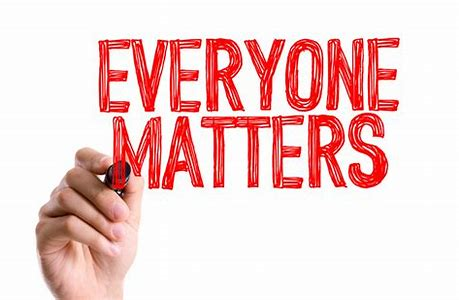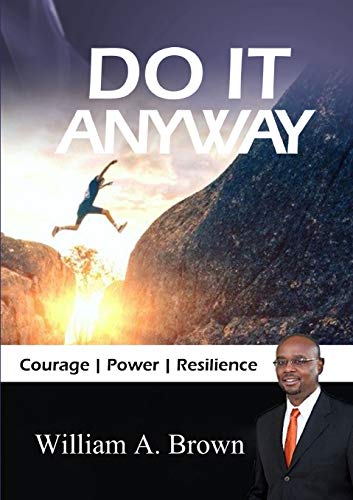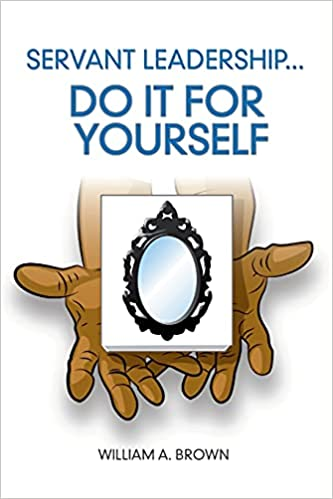Article-Detail

Inclusion Improves Morale and Performance
I read an article this week about easy composting because, from time to time, no matter how hard I work as the ‘leftover nazi’ food goes bad from time to time. I’ve buried food in my garden in the past and I wondered if it actually was helping my garden. Turns out, if it's done correctly, you can bury almost anything in your garden and if you’re patient, it will maximize your harvest. This reading got me thinking about a potato that had gone bad, gotten soft, and began to smell through the pantry door. As that potato rotted, it had grown roots, then started to rot other potatoes in the bag, oozing a nasty fluid that created a stinking mess. I know I’m not the only person who has had this experience. Anyway, that same potato, if buried in my garden, would bring value to me. This principle works with almost anything, including people. Particularly at work. If put in the right position and conditions, even the person with the most acrid attitude can shine.
The way you perceive that potato determines the way things turn out for you. If all you see is its off-putting qualities, you’ll throw it away and never think of it again. If you see it’s change as an opportunity to do something else with it, you will benefit. The difference is an attitude of inclusivity vs exclusivity in the leader. A disgruntled employee usually feels excluded, most of the time for good reason. We’re all human, the psychological and behavioral responses are predictable. If someone is shunned (excluded), they will feel less included and resentful, leading to behavior that results in (no surprise here) more shunning and more misbehavior. If someone feels accepted and welcomed, they will feel like part of the group (included) and will perform in ways that will lead to more acceptance and better performance. The spiral works both ways, the leader determines whether the group spirals up or down, and the deciding factor is the way that leader sees each potato...er… person.
Focus on the need, not the deed. If you ask, most leaders will tell you that they want to do a good job. They will tell you that they have an open door policy, they look to collaborate and listen to people. The problem is, we are all terrible judges of ourselves. Psychologists refer to a concept called implicit egotism to explain people’s tendency to view things in ways that make themselves look good. In the context of a disgruntled employee, a boss will talk about his collaborative leadership style while making employees feel excluded and spiraling morale downward. These leaders justify their behavior with the behavior of the employee. Essentially, blaming their victim. What isn’t given enough thought is, the boss’ contribution to this escalating resentment and the needs of that employee. An employee whose needs are met is less resentful. If leaders can get past feeling slighted (the deed) and focus on the need, that potato can bring value to the entire team. Here is the hard part, the leader must go first so get over it and start now.
Exclusion is perceived as punishment. Just for a minute, let's view this whole discussion from the perspective of the potato. It’s sat there waiting for its turn to be scalloped, mashed, baked, fried, or boiled with pieces of steak but has been ignored. After a while, it tried to bring life by sprouting roots but without soil and water, it was a failed effort. Finally, without having received any attention, it began to weep, sulk, and stink. Then it finally gets attention, but only as a problem. A problem that must be disposed of at the next opportunity. Research reveals that there are far more rotten or rotting potatoes in our offices than any of us care to admit. Either by omission or commission, intentionally or unintentionally, people feel shunned by their boss. Humans are social animals, we thrive in groups. We exclude or separate people from the group as punishment. When people are excluded, they feel punished. Implicit egotism also plagues employees who feel like they’ve done ‘nothing wrong’ and are victimized by an unfair boss. This feeling leads to the downward spiral. Unlike an actual potato, attention can bring a workplace potato back to life. Like a student who performs for one teacher while driving another crazy, it's all about the leader.
Inclusion is perceived as acceptance. I am a lover of potatoes, and I have a waistline to prove it. Twice baked, cheddar mashed, hash browned, you name it. I can put a potato to work! Sometimes, though, as I said earlier in this article, a potato goes ignored and I pay the price. In the past I would look at it with disdain, scoop up the mess, toss it outside and never think of it again. Today, I compost, using what might otherwise be seen as waste to bring color and flavor to my garden by the process of inclusion. Looking at people as part of the team in need of a valuable role, leaders can find ways to breathe life back into a rotting potato at work. The key is to not give up. I hear it all the time in conversations with leaders dealing with disgruntled employees, “I’ve already done that”. Do it again, then again, and again, until you create a culture of inclusivity in your office. People long for attention from their boss, positive or negative, and they’ll use your conduct to justify their behavior. If it sounds like leaders and employees are the same, you’re not misinterpreting the message, that’s the point. People ARE the same.
If you don’t like potatoes, the same happens with a rotten banana, lettuce at the bottom of the fridge, or spoiled milk, you can compost it all bringing life to your garden. You can also give life to shunned or resentful people, improving morale and performance of your team. Exclusive cultures do not motivate people to work hard to join the in-crowd, it makes people feel like they are being punished. Inclusivity makes people feel welcomed. The way bosses long for positive attention from their bosses, your employees need it from you.
People don’t buy into the organization, or the widgets they produce. People buy into the leader and commit to the leader because the leader commits to them; inclusion. One author I read spoke of one common thread between all religions, it's often called ‘the golden rule’, treat others the way you want to be treated. Look it up, all religions have a version of it. At work, look at the situation from the perspective of the potato. We are all the same, instead of seeing a rotting heap, unfit for consumption, look for ways for it to bring value and act on it and you will SOAR!
William A. Brown
August 9, 2020
https://www.linkageinc.com/leadership-insights/exclusive-leadership-is-hurting-your-bottom-line/
https://www.psychologytoday.com/us/blog/put-your-mindset-work/201810/inclusivity-and-diversity
https://donotdisturbgardening.com/can-i-bury-kitchen-scraps-in-my-garden-easy-composting/




